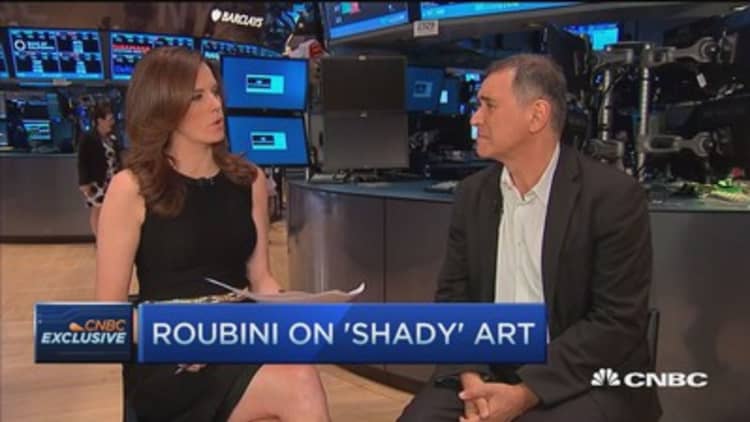
Bond investors shouldn't expect a "rate riot or rate rage" when the Federal Reserve begins to raise interest rates because the central bank has already telegraphed what it is going to do, economist Nouriel Roubini said Tuesday.
"It's not going to be a significant surprise. As the economy recovers, as inflation goes higher, gradually long-term interest rates are going to go higher," said the co-founder and chairman of Roubini Global Economics, also known as "Dr. Doom."
That said, he told CNBC's "Closing Bell" there could still be some volatility in the short term.
"In the short run, lack of market liquidity, lack of market makers can imply that when there are some surprises—economic and otherwise—or inflation, then you're in a very volatile environment for bond yields in the U.S. and Europe."
When it comes to stocks, Roubini said there is "certainly frothiness" but not a bubble.
He noted that among other things, price-earnings ratios are slightly above historical averages and some sectors like biotech and technology look "funny in terms of what's happening right now."
"The frothiness is driven by the fact that we are still at zero policy rates in the U.S." and quantitative easing in advanced economies like the euro zone and Japan, Roubini said.
Read MoreBanks not buying what the US government is selling
All the liquidity hasn't been going into the real economy; instead it's going into asset reflation, he added.
"Soon enough asset reflation can become asset inflation, asset inflation can become asset frothiness and eventually you have asset and credit bubbles."
Therefore, he thinks valuations and the length of the Fed's exit from the market need to be watched.
"My worry is the real economy justifies a slow exit—low inflation, still low growth, unemployment is still high—but then all this liquidity is going to go to asset inflation and eventually in frothiness and financial bubbles."
Roubini has already warned a bubble may be forming in the art market, which he thinks should be considered as an asset class like stocks and bonds.
Read More Beware an art market bubble, Roubini warns
On Monday night, the Pablo Picasso painting "Les femmes d'Alger (Version 'O')" became the most expensive work of art ever sold at auction when it went for $160 million. Including the auction fees, the total price was $179.37 million.
The piece was last sold at auction in 1997 for $31.9 million.
"What I'm seeing is that these asset prices, even for art ... is a signal of how many asset prices are too high today," Roubini said Tuesday.
He also said in some cases, art has been used for money laundering or tax evasion.


